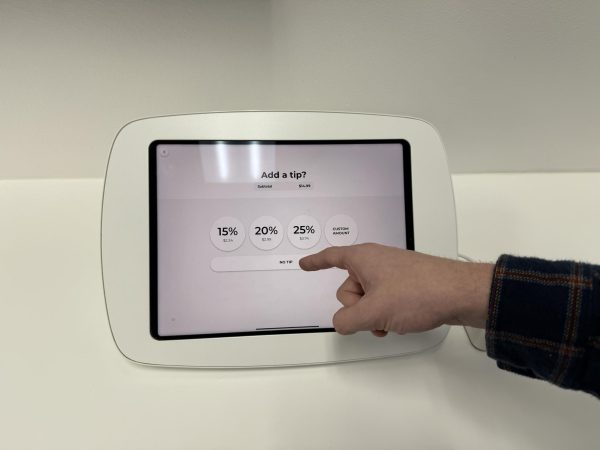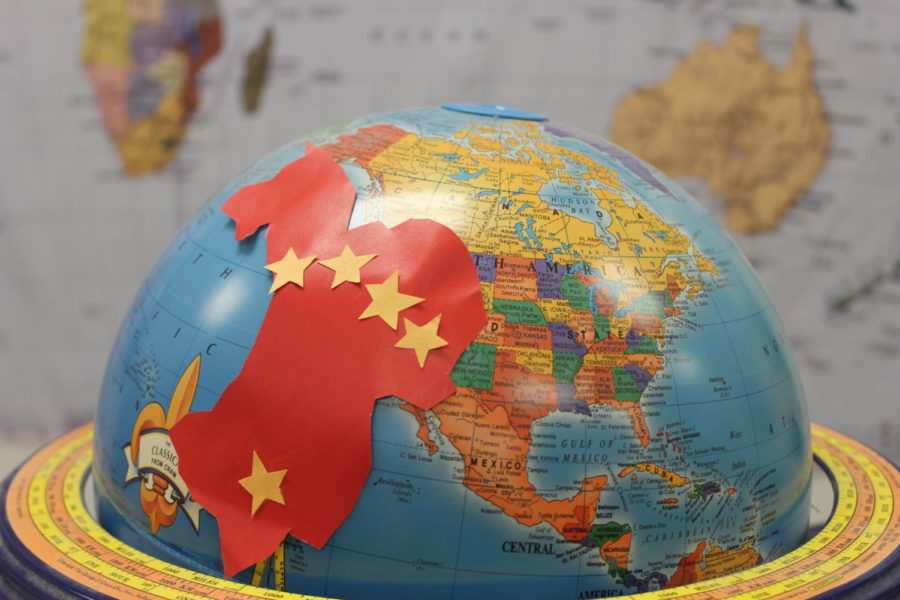Michael’s Manifesto: The Changing Global Role of America
Media by Jackson Estwanick
Six months into the Chinese trade war and the United States has still been unable to reform China’s alleged unfair economic tactics. It’s been almost a year since President Trump’s initial summit with North Korean leader, Kim Jong-un, and North Korea has yet to make progress towards denuclearization. For the past several months, the U.S. State Department has unsuccessfully pressured the current Venezuelan regime to step down in favor of Interim President, Juan Guaidó.
Undoubtedly it feels as if we’ve now entered a time where American influence is declining. For so long, America has been considered the leader of the free world, but now those days seem numbered.
The People’s Republic of China seems to have taken our place in influencing the developing countries of the world to pursue our own interests. For instance, last year in Africa, China invested $90 billion in regional infrastructure. China builds large road and dam projects in exchange for preferentially low oil and resource prices from these impoverished nations. Not only has this tactic provided China with a limitless supply of resources to expand its manufacturing-based economy, but it has created a series of client states indebted and dependent on China.
While China has worked on expanding its influence, the international community seems to have abandoned the concept of American leadership. The previous German Foreign Minister, Sigmar Gabriel, last year said “Europe had been an American project in the United States’ clearly understood interests. However, the current U.S. administration now perceives Europe in a very distanced way, regarding previous partners as competitors and sometimes even as at the very least economic opponents.” He infers that now is the time for Europe to lead its own interests if the United States aren’t willing to cooperate.
These trends are very different from what we’ve been taught in school. We learn that the U.S. is the major influencer of national politics throughout the world – a fact to take pride in. The U.S. helped defeat fascism, communism, and altered political landscapes in Central America to protect its interests. Without this identity, what will it mean to be American for the future generations?
Scott Szevery, AP American History teacher, argued that this recent period of withdrawal of the U.S. from international politics is only a part a recurring pattern in American foreign policy. He said Americans felt similar after the Vietnam war; however, we quickly regained our fervor for international relations in the 1980s.
Szevery said that while our latest patch of “retrenchment” has resulted from fatigue over the wars in Iraq and Afghanistan along with concern from the Great Recession, we’ll inevitably bounce back.
“I think the profound impulse in American history is to be the “city on the hill,” where we can shine the light of democracy and try to get others to follow in our example,” Szevery said. “That impulse is pretty strong; I don’t think it’s going to go away. We might have periods of withdrawal, but we return to the world stage because that’s just who we are.”
Where or not this transition is part of a temporary pattern, maybe it should be welcomed. And maybe it shouldn’t be a temporary transition. As the world leader for instance, we’ve felt largely obligated to lead the War on Terror, something that consumes trillions of dollars and thousands of lives to this day.
The sun could very well be setting on American power; however, this could be more of an opportunity than a fall from grace. As Americans, we’ve inherited the claim that we live in the best country in the world. Speaking from a military and economic perspective, this is true, but what has that fact done for us? We don’t receive a better healthcare system, a better school system or even medals because of this achievement. In fact, many of our facilities tend to be worse than those of some first world countries. The U.S. places 31st internationally in respect to life expectancy, and according to a study 2014 by the U.S. Department of Education, 32 million adults in the U.S. are illiterate.
We might not be number one for very much longer, but that shouldn’t really concern us. My only concern is that China is the power who’s in position to take our place. As long as a democratic country is the one to fill the vacuum we leave behind, then I’ll be happy.
I understand that a source of American pride is being number one, my brother illuminates prides for being part of the world’s most powerful army, but at the end of the day, would it be so bad for the us to be just another Canada?
Your donation will support the student journalists of Marquette High School. Your contribution will allow us to purchase equipment and cover our annual website hosting costs. You may become a PATRON by making a donation at one of these levels: White/$30, Green/$50, Blue/$100. Patron names will be published in the print newsmagazine, on the website and once per quarter on our social media accounts.

Michael Schmitz, senior, is a foreign correspondent for the Messenger. During his time in Israel, he will utilize his background in political analysis...

Jackson Estwanick, senior, was the Executive Producer of MHSNews and the Messenger from 2018 to 2020. He also cadet taught Intro to Digital Media Production....







